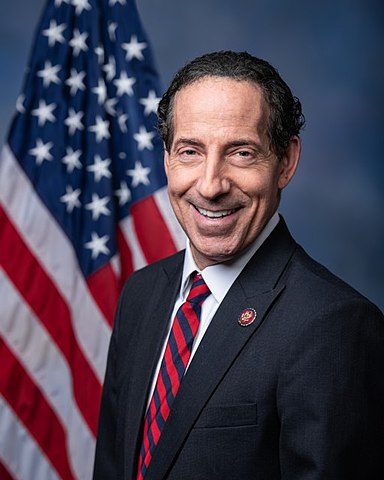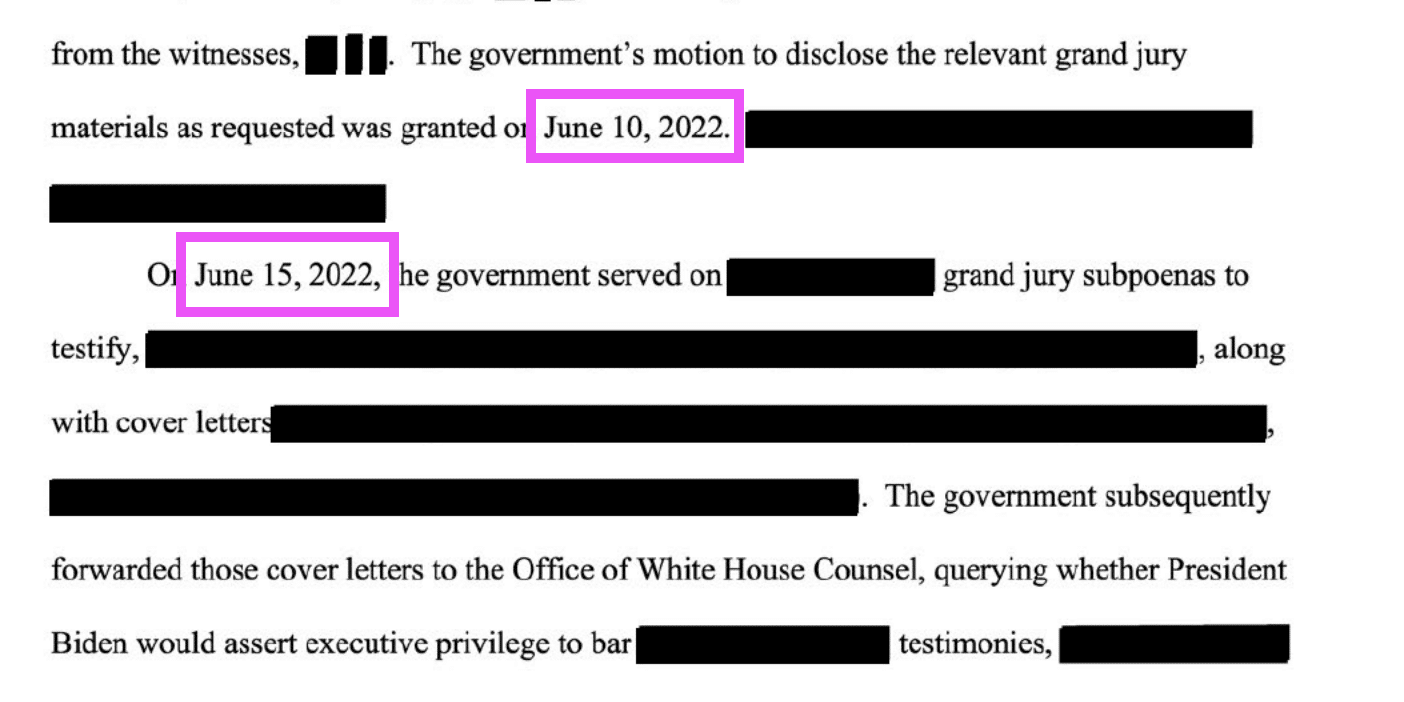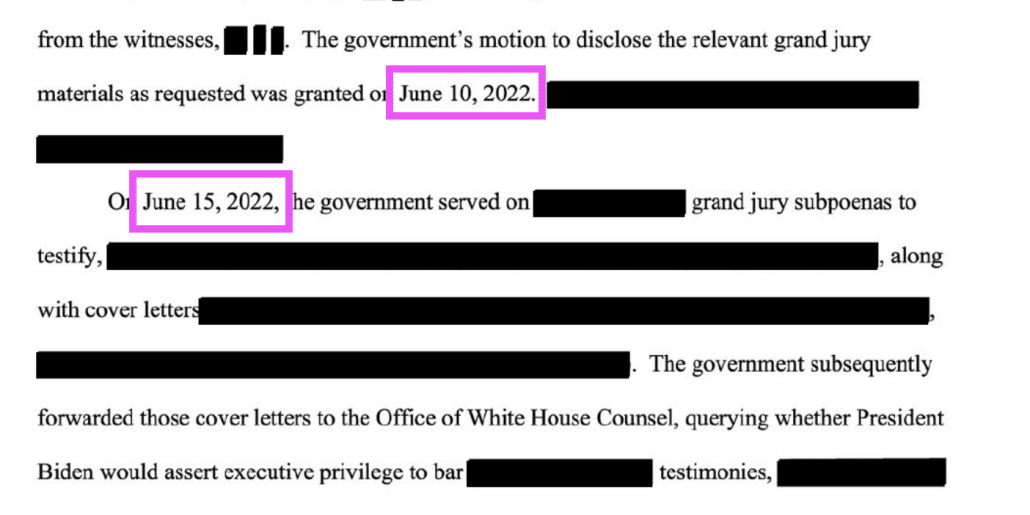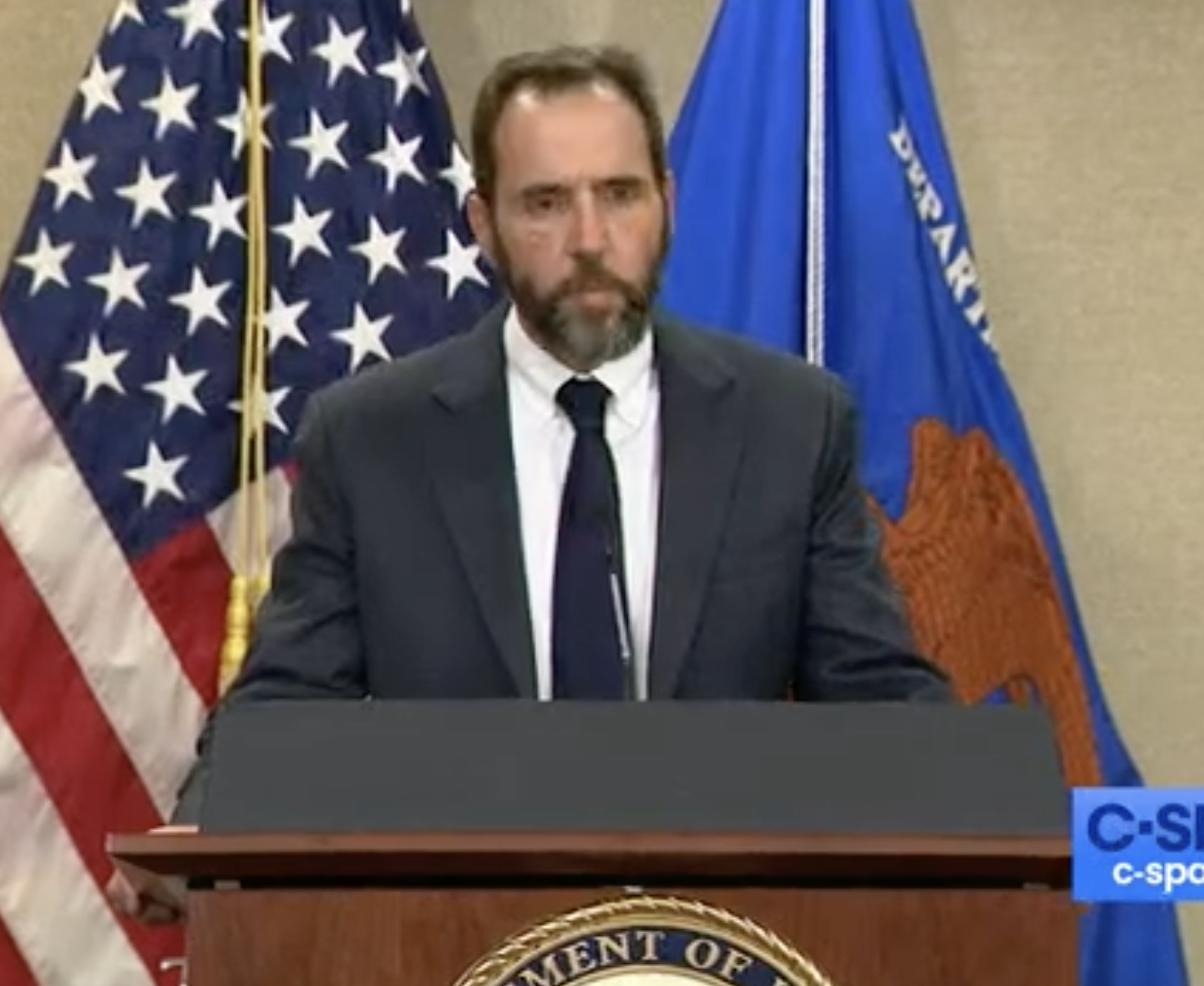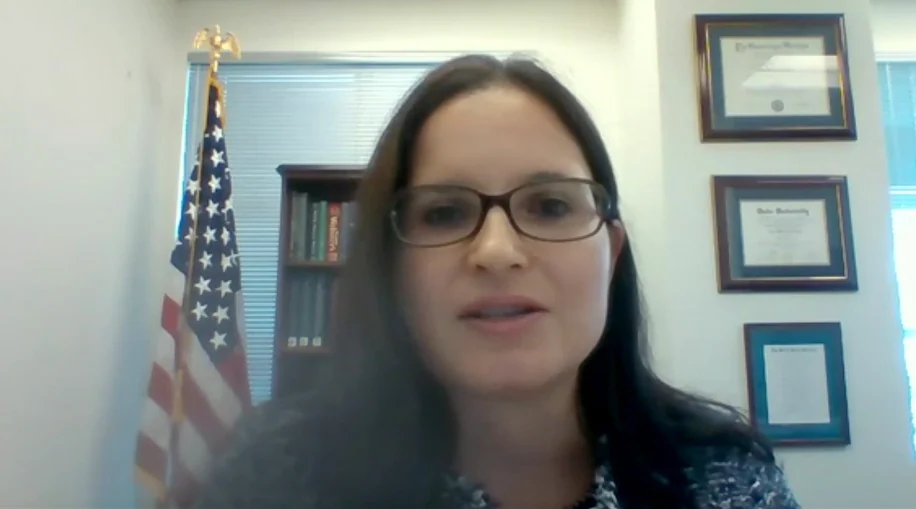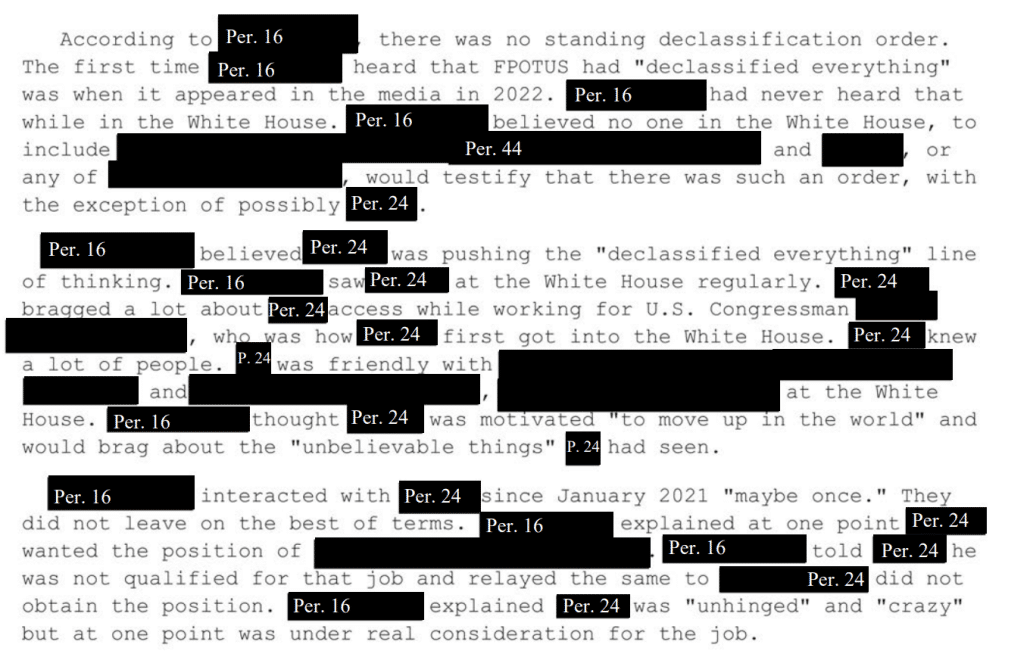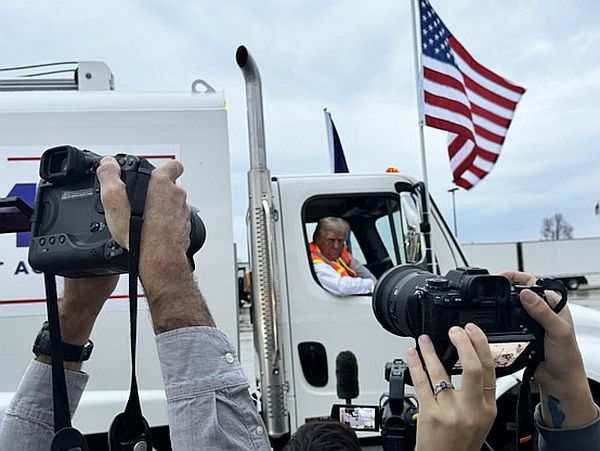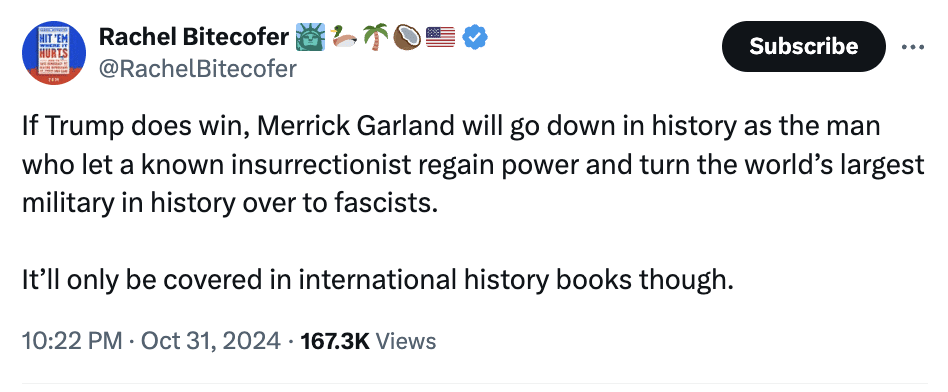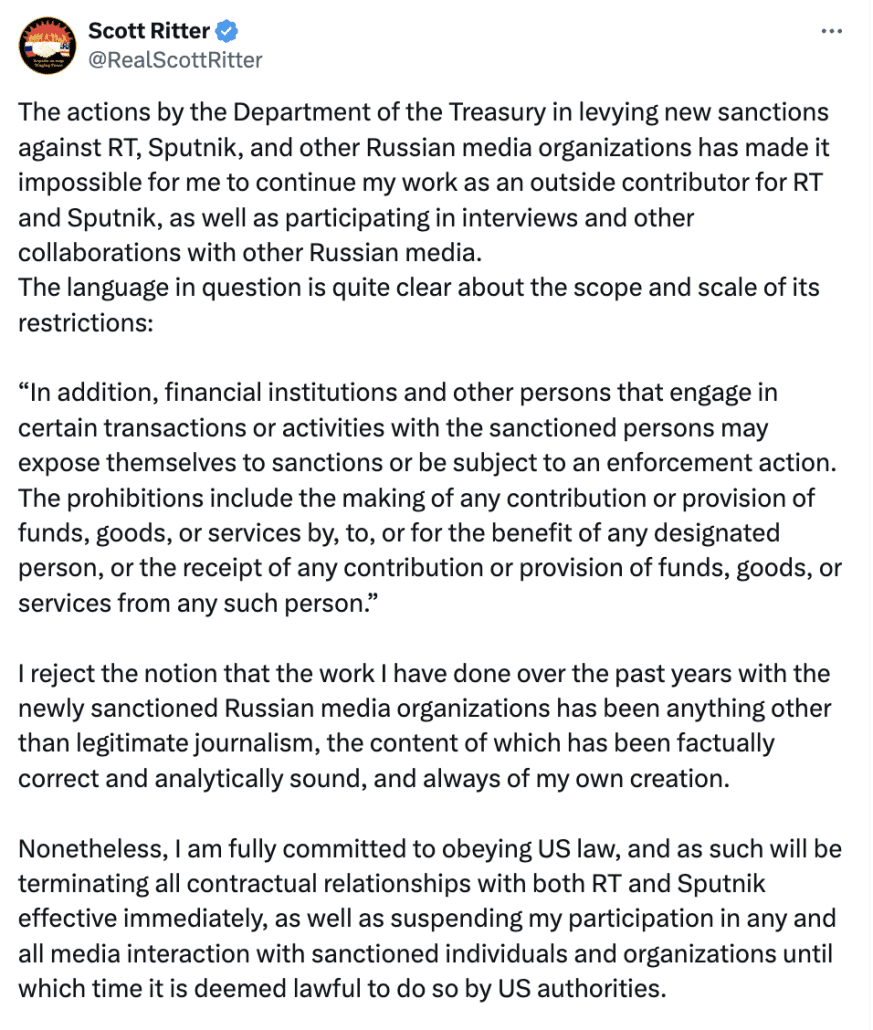On the Misguided Tactical Conversations about Volume Two of the Jack Smith Report
Like everyone else, I badly want to see Volume Two of the Jack Smith report. If it were a fulsome report, it might give us explanations for the kinds of documents Trump hid in his bathroom, it might explain why there was a grant of clemency to Roger Stone with some tie to a Secret document about Emmanuel Macron in Donald Trump’s desk drawer, and it might reveal more about Kash Patel’s efforts to help Trump lie about the documents. It might even describe what investigators might have learned if Walt Nauta had cooperated.
Given the ways that Jack Smith pulled his punches in Volume One, however, I’m far less optimistic the report is as expansive as it could have been if it had adopted Robert Hur’s approach to declination decisions. It’s more likely the report would offer explanations for why Smith charged the case in SDFL and why he didn’t charge 18 USC 2071 — both of which would be useful for those who don’t understand those issues, but still wildly unfulfilling.
If Volume One is any indication, Smith did not use his report to get out previously unknown details.
Plus, I’m not sure what good it would do anyway. The most interesting response to Volume One, in my opinion, was seeing a lot of the same pundits who had complained that Jack Smith hadn’t released more information publicly making it clear they didn’t realize that most of the factual discussion was cited directly to the immunity brief Smith fought to release before the election, in October. Thanks for proving my point that you weren’t paying attention to the stuff that was getting released! Not to mention the Garland whingers who, in their misreading of the Jack Smith report, confessed they had never been reading the public documentation about how the investigation proceeded and weren’t going to before using it to attack Garland. You all failed to make something of this investigation when it could have mattered. It’s not clear how you’ll do better with Volume Two.
I think the House Judiciary Committee letter calling on Merrick Garland to release the report — something I want too! — by dismissing the case against Nauta and Carlos De Oliveira is the same kind of misguided intervention. Particularly given DOJ’s emphasis in court filings that Jamie Raskin has a constitutional entitlement to review the document in his function as Ranking Member of HJC, just like Dick Durbin has a heightened interest given his duty to advise and consent to the Kash Patel confirmation.
I’m no genius on criminal procedure, but I simply don’t understand how this would work. DOJ can’t just dismiss the case. They have to have to dismiss it somewhere in court, just like Bill Barr tried with Mike Flynn. I’m not even sure where you would do that, because there’s not currently a pending case. There’s an appeal of the complete dismissal of the case in the 11th Circuit, where you could dismiss the appeal. And there’s Aileen Cannon’s courtroom, where the legal status of the case is that everything that happened after November 18, 2022, after Jack Smith was appointed, is unconstitutional. If Cannon’s ruling holds, then arguably even writing the report was unconstitutional (which is why it was dumb, in my opinion, not to have written a two-part Volume Two, breaking out the stuff (to include the Kash Patel interview) that happened before Smith was appointed. Aileen Cannon is not going to let you dismiss the case, I promise you.
There’s something being missed in this discussion that’s worth pondering. It’s not Merrick Garland who made the decision to withhold Volume Two until Trump destroys the remaining case against Nauta and De Oliveira. It was Jack Smith who recommended that course of action.
Because Volume Two discusses the conduct of Mr. Trump’s alleged co-conspirators in the Classified Documents Case, Waltine Nauta and Carlos De Oliveira, consistent with Department policy, Volume Two should not be publicly released while their case remains pending.
Which Garland adopted.
I have determined, at the recommendation of the Special Counsel, that Volume Two should not be made public so long as those defendants’ criminal proceedings are ongoing.
Given what we saw in Volume One, there are multiple possible reasons he may have made that recommendation. Possibly, as he did in Volume One, Smith is just trying to adhere to normal procedure as much as possible, to prove that he and any lawyers who attempt to remain at DOJ after next week never tried to pull a fast one on Trump. Possibly, Smith simply believes the legal posture of the case, in which ceding Aileen Cannon’s view that everything that happened after November 18, 2022 is unconstitutional would concede the report is too, makes releasing it impossible at the moment.
Possibly someone involved with all this believes there’s a different way to get the volume released.
Again, given what we see in Volume One, I assume it’s one of the first reasons: It really is department policy not to harm the trial rights of defendants (Mueller succeeded in releasing his report even though both Roger Stone and Yevgeniy Prigozhin’s trolls still had to stand trial, which led to many squabbles about redactions). For whatever well- or ill-considered or naive opinions, Smith really is trying to reassure everyone that everything is normal.
That said, there are some reasons to believe the report won’t get destroyed right away. One is that several people have already FOIAed it, creating legal problems (that Trump and possibly even Pam Bondi don’t care about) if it disappears. A far stronger one is that to investigate anyone from Jack Smith’s team, you need to preserve Jack Smith’s records.
I can think of several ways this report might still be liberated via other means.
But it’s worth noting that when it comes time to make Nauta’s appeal go away, every single person Trump wants at DOJ has a conflict: aspiring Deputy Attorney General Todd Blanche was Trump’s attorney on this, aspiring Solicitor General John Sauer his appeals attorney. Emil Bove, who will serve in the unconfirmed position of PADAG and will run the department starting Monday until others are confirmed, was also on Trump’s Florida team. And Pam Bondi joined an amicus before the 11th.
When Bondi, at least, was asked about her many conflicts in her confirmation hearing, she gave the standard rote answer: that she would consult with the career ethics officials at DOJ. That amounted to a tacit, non-binding commitment that she (and Bove, who’ll get there before her) won’t eliminate those key career officials. If that were to include Brad Weinsheimer, who supervised all of the Special Counsels Garland approved (and may have influenced the unsatisfying scope of Smith’s final report), that would put him the middle of these decisions.
As noted, even while DOJ seems to be pursuing a least-damage approach with Volume Two, they are establishing the prerogatives of Congress to access this report — and not just the report, but even underlying 302s from the investigation.
The Department has historically made materials available for in camera review by members of Congress as part of the process to accommodate the Executive Branch’s interests in protecting the confidentiality of sensitive information while ensuring that Congress can fulfil its own constitutional oversight functions.2 For example, when a congressional committee sought FBI Form 302 interview reports referenced in the Final Report of Special Counsel Robert Mueller, the Department reached an agreement with the Committee to make those reports available in camera, at the Department, pursuant to specified terms, with redactions to protect privileged and grand jury information. See Supplemental Submission Regarding Accommodation Process ¶¶ 1-2, In re: Application of the Committee on the Judiciary, U.S. House of Representatives, No. 1:19-gj-00048- BAH, ECF No. 37 (D.D.C. October 8, 2019).
2 Congress has recently, on multiple occasions, taken the position that it has a particularized legislative interest in information about Special Counsel investigations, in order to consider possible legislative reforms regarding the use of special counsels. See., e.g., Plaintiffs’ Motion for Preliminary Injunction or, in the Alternative, for Expedited Summary Judgment at 43, Committee on the Judiciary, U.S. House of Representatives v. Garland, No. 1:24-cv01911, ECF No. 11 (D.D.C. Aug. 16, 2024); Plaintiffs’ Motion for Preliminary Injunction or, in the Alternative, for Expedited Summary Judgment at 4, Committee on the Judiciary, U.S. House of Representatives v. Garland, No. 1:24-cv-01911, ECF No. 11 (D.D.C. Aug. 16, 2024); Plaintiffs’ Motion for Preliminary Injunction or, in the Alternative, for Expedited Summary Judgment at 10, Committee on the Judiciary, U.S. House of Representatives v. Garland, No. 1:24-cv-01911, ECF No. 11 (D.D.C. Aug. 16, 2024).
Wouldn’t it be better for Raskin to at least assert his own constitutional prerogative here, rather than a letter that doesn’t address the procedural means via which Garland could dismiss the case? Particularly given that, in the vacuum created by his silence, Trump is making Raskin’s partisanship cause to keep the document sealed?
The government does this despite knowing that these political actors will have every ability and incentive to use such information to undermine President Trump’s transition and his ability to govern our Nation moving forward.2 Nor is there any material doubt the ranking members will do so, given their immediate politicking on Volume I of Smith’s report, including extensive and hyperbolic commentary on the contents of that Volume. See Raskin, Ranking Member Raskin’s Statement on Special Counsel Jack Smith’s Report on President-Elect Donald Trump’s Election Subversion and Incitement of Insurrectionary Violence (Jan. 15, 2025); Durbin, Durbin Statement On Former Special Counsel Jack Smith’s Report On Trump’s Interference In The 2020 Election (Jan 14, 2025).
Thus, the government is not seeking, as it claims, to aid Congress in exercising its “oversight functions.” Doc. 703 at 3. Instead, by delivering Volume II to unashamed partisans, the government strategically aims to ensure the Volume’s public release. Although the government claims that a purported “agree[ment] to specified conditions of confidentiality,” id. at 4, would alleviate these concerns, it would do nothing of the sort. As the government well knows, the Constitution prohibits any enforceable restrictions on the ranking members’ use or disclosure of information in furtherance of their official duties. The ranking members could, for example, stand on the floor of the House or Senate and disclose the entire contents of Volume II, without fear of any legal consequence. U.S. CONST. art. I, § 6, cl. 1 (providing for Speech or Debate Immunity); Hutchinson v. Proxmire, 443 U.S. 111, 130 (1979) (“A speech by [a Senator] in the Senate would be wholly immune and would be available to other Members of Congress and the public in the Congressional Record.”). Thus, whatever “confidentiality agreement” the government purports to adopt (the terms of which the government has pointedly not provided the Court), it is entirely illusory, because no such agreement is enforceable. Disclosure to the ranking members is functionally equivalent to public disclosure. This, in turn, poses an extraordinary danger to President Trump’s ability and right to prepare for the Presidency free of such unconstitutional attacks by the incumbent administration.
If this report doesn’t come out, it can be made into an anvil to hang over the entire leadership of DOJ. To make it one, though, you need to establish clearly that Congress has equities in this document, too, and any abridgment of those equities will provide opportunity for Congress to intervene with DOJ.
Thus far, Congressional Democrats have chosen a far less effective route.

